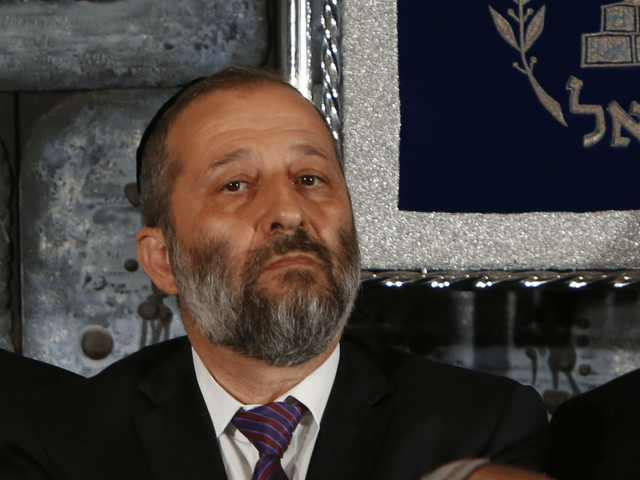Israeli Prime Minister Benjamin Netanyahu on Sunday fired Shas party leader and key ally Aryeh Deri, ending his tenure both as Health Minister and Interior Minister, after the Supreme Court ruling deemed his appointment “unreasonable to the extreme” in light of his convictions over tax offenses.
Netanyahu said the court’s ruling left him with no choice and that it was “with a heavy heart, much regret, and the most terrible feeling” that he was forced to let his longtime ally go.
Netanyahu said he would make use of Deri’s “considerable talents” and appoint him as a prominent coalition official, even if he was barred from a ministerial position.
Deri responded to the decision by vowing to continue on with his political life.
“No judicial decision will prevent me from serving and representing,” he said.
The ultra-Orthodox Shas party won 11 seats in the November 1 election. The Netanyahu-led coalition has a 64-seat majority out of the Knesset’s 120 seats.
The Supreme Court ruling came amid widespread protests over proposed reforms to the country’s left-leaning judiciary.
Some 120,000 Israelis gathered in Tel Aviv on Saturday night to protest the government’s proposal to overhaul the left-leaning judiciary.

File/A picture taken on May 19, 2015, shows Israeli Minister of Economy Aryeh Deri looking on during the traditional photograph in honor of the swearing in of the 34th government of Israel at the Presidential compound in Jerusalem. (GALI TIBBON/AFP/Getty Images)
The protest was attended by several opposition figures, including former prime minister Yair Lapid who said: “People who love the country have come here today to protect its democracy and to defend its courts.”
Justice Minister Yariv Levin’s proposal for reform includes changes to the way in which judges are elected, which is currently done by an independent committee with little input from political representation, and redefining the influence that the judicial branch can have over the executive branch, including a controversial “override clause” that would allow the Knesset to re-legislate laws that the Supreme Court had struck down, pending a 61-MK majority.
Levin also seeks to curb the use of the so-called “reasonableness measure” by which the Supreme Court can strike down any law or government action it deems “unreasonable” – for example, Deri’s initial appointment as a cabinet minister.
Advocates of the reform have claimed that it would correct a power grab by the Supreme Court and restore a balance of power to the executive branch.
Legal expert Professor Eugene Kontorovich said the court’s ruling proved “urgent reform” of the judiciary was needed, since striking down the appointment was based not on law but on the court’s own “notions of propriety.”
Kontorovich, who is the director of International Law at the Jerusalem-based Kohelet Policy Forum which has advocated judicial reform in Israel for a decade, said the law does not contradict the validity of Deri’s appointment, however distasteful it might be.
“Rather, they said that appointing him in particular, given his checkered past, is ‘unreasonable’ – in other words, a bad idea. That is a reasonable policy position, but it has nothing to do with what the judges are supposed to be doing – interpreting law, or minority rights,” he said.
The ruling proves that the Supreme Court “seeks to exercise power over every aspect of Israeli life, even the outcome of elections.”
“That the Supreme Court can dismantle an elected coalition based not on the law, but on its own notions of propriety, powerfully illustrates the need for urgent reform,” he said.

COMMENTS
Please let us know if you're having issues with commenting.